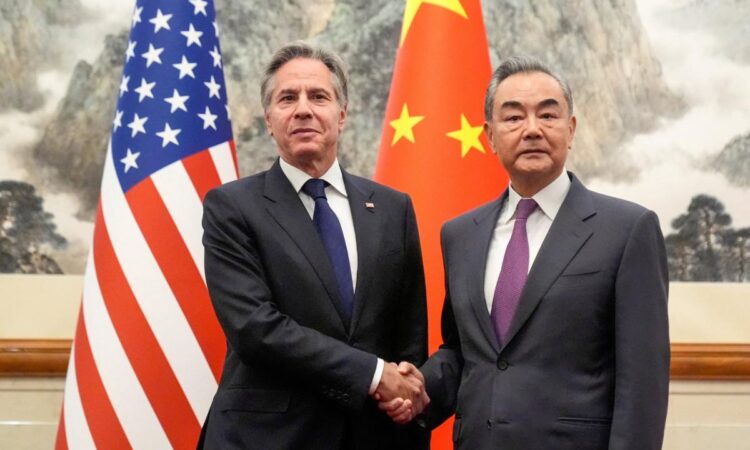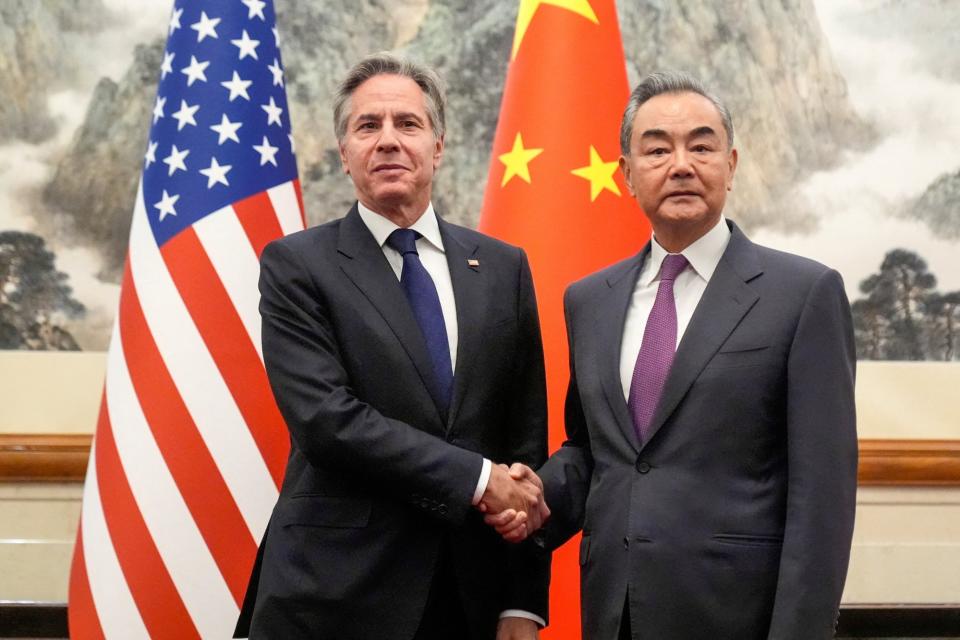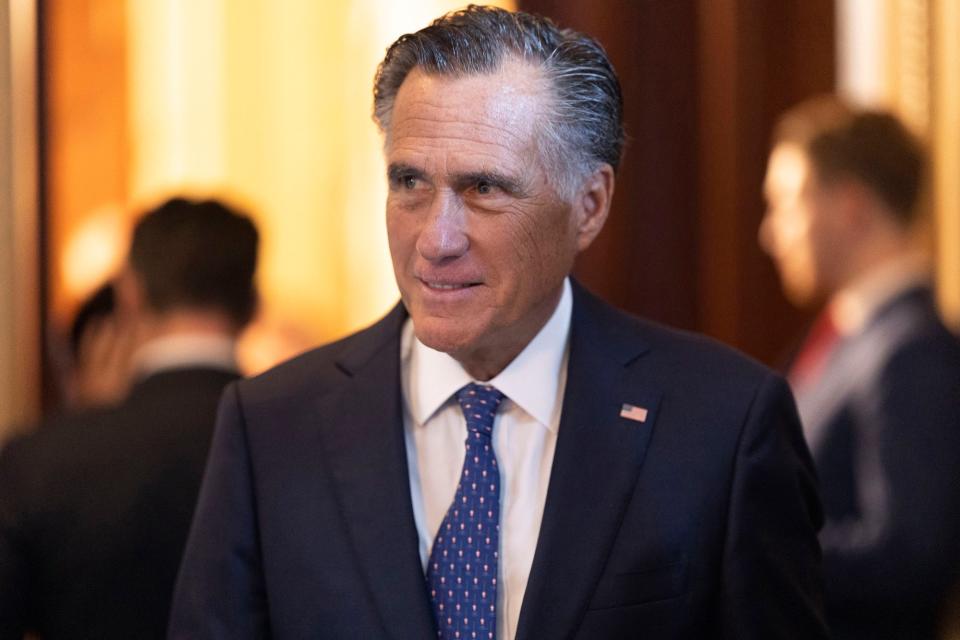US working with EU to counter China on its Russia support, overcapacity, say Antony Blinken and Janet Yellen

Two senior members of US President Joe Biden‘s administration discussed on Tuesday cooperation with the European Union on countering Beijing, using additional sanctions to stymie Russia‘s war against Ukraine and tariffs to deal with Chinese overcapacity.
US Secretary of State Antony Blinken said the administration would work with the EU to sanction Chinese companies supplying Russia with microelectronics and hi-tech products that support Moscow’s defence industry.
Hours earlier, US Treasury Secretary Janet Yellen said Washington and Brussels “will need to stay coordinated” to shield the two economies from “China’s industrial policy”.
Do you have questions about the biggest topics and trends from around the world? Get the answers with SCMP Knowledge, our new platform of curated content with explainers, FAQs, analyses and infographics brought to you by our award-winning team.
Blinken, testifying at a hearing of the Senate Foreign Relations committee on Tuesday, said the US would continue to sanction Chinese entities identified as providing Russia with products that have military and civilian uses.
“We have already sanctioned more than 100 Chinese entities that we have identified that were engaged in providing dual-use products and other things that are on sanctions lists,” America’s top diplomat said. “We will continue to do that.”
“We are working to coordinate our efforts with European and other partners who are also aggrieved in fact, in many ways, even more aggrieved by this practice because it is a direct threat to them,” he continued.
“You cannot have China on the one hand professing to seek better relations with countries in Europe while on the other hand fuelling the greatest security threat to Europe since the end of the Cold War.”
Blinken described Russia as “churning out tanks, artillery and ammunition at a record pace” because of China’s “overwhelming support to Russia’s defence industrial base”.
The envoy raised the concern directly with Chinese President Xi Jinping and Foreign Minister Wang Yi during his trip to China last month, he said at the time.
Beijing’s strengthening ties with Moscow in the two-plus years since Russia invaded Ukraine have deepened Washington’s distrust towards the Asian giant.
During the visit to China, Blinken also said he “was extremely clear about our concerns” with Beijing’s leadership and that “we’ll have to see what actions follow from that”.
“I think China has demonstrated in the past, when it comes to Russia and Ukraine, that it can take positive action,” he added, referring to previous comments by Beijing warning against the use of nuclear weapons.


Blinken (left) meets with Chinese Foreign Minister Wang Yi in Beijing on April 26, 2024. Photo: Reuters alt=Blinken (left) meets with Chinese Foreign Minister Wang Yi in Beijing on April 26, 2024. Photo: Reuters>
Sanctions on Chinese companies for supplying Russia is a top priority for both the Biden administration and the US Congress.
The US government imposed sanctions this month on 20 Hong Kong and mainland Chinese companies for their alleged roles in the development of Russia’s industrial base and military.
Last month US lawmakers introduced a bipartisan bill that would impose sanctions on any Chinese military firm that provides material support to Russia.
Separately on Tuesday, US Deputy Secretary of State Kurt Campbell and Italian Ministry of Foreign Affairs Secretary General Riccardo Guariglia also discussed China’s support for Russia in a “consultation on the Indo-Pacific” hosted by Campbell in Washington.
The two sides announced that they “discussed joint priorities” including urging China to “cease shipments of dual-use goods to Russia for use in its war against Ukraine”.
The Biden administration has made forging closer relations with its traditional allies and China’s neighbours a key part of its policy towards the world’s second-largest economy, even as it strives to uphold its stated commitment to high-level dialogue with Beijing.
In her remarks on the importance of the US-European alliance in Frankfurt, Yellen warned that excess industrial capacity in China threatened firms not only in the US and Europe but also in emerging markets globally.
“China’s industrial policy may seem remote as we sit here in this room, but if we do not respond strategically and in a united way, the viability of businesses in both our countries and around the world could be at risk,” she said.
Ursula von der Leyen, the European Commission chief, responded to Yellen’s comments with a mixed message, asserting a “different approach”.
“We share some of the concerns of our counterparts but we have a different approach, much more tailored approach,” von der Leyen said. “We have launched an investigation … according to WTO rules, so the investigation is still ongoing.
Should subsidies be found to exist, “then I can guarantee that the level of the duties we would impose” would correspond to “the level of damage”, she added.
The political risk consultancy Eurasia Group said in a research note on Tuesday that it raised the odds of the EU placing provisional tariffs on electric vehicles imported from China to 85 per cent, from 65 per cent previously.
“The European Commission has sent repeated signals that ‘excessive’ Chinese subsidies to EV-makers are harming European automakers,” it explained.
“The commission has expressed its commitment to broadening its efforts against Chinese overcapacity in strategic sectors,” Eurasia Group said, adding that “China has limited room for retaliation”.
While measures aimed at blunting China are generally supported in Congress, the White House approach of engaging Beijing’s leadership runs counter to the more hardline approach that many Republicans in Congress are demanding.
Speaking at the hearing, Republican Mitt Romney of Utah said the administration had yet to deliver a comprehensive strategy to Congress to respond to China’s ambition to “dominate the world militarily, economically, geopolitically”.
The senator introduced an amendment to the 2022 National Defence Authorisation Act that “requires the president to develop a grand strategy with respect to China”. Under the legislation, the administration would have to submit its plan to Congress by July.


US senator Mitt Romney, a Utah Republican, has criticised the Biden administration’s China policy. Photo: Getty Images/TNS alt=US senator Mitt Romney, a Utah Republican, has criticised the Biden administration’s China policy. Photo: Getty Images/TNS>
Among the tactics Romney saw Beijing employing in its “grand strategy” were “spy cranes in the seaport” as well as “selling drones, Chinese drones, to our police forces” and “monopolising key raw materials around the world”.
On this point, Blinken said he agreed “wholeheartedly with the short litany of items” Romney listed “in terms of what China’s doing to try to pursue its military, economic, diplomatic pre-eminence or dominance in the world” and pledged to follow up.
US senator Rand Paul – a Kentucky Republican who has long supported libertarian principles – emerged on Tuesday as the sole member of his party to voice support for engagement with Beijing.
He repeatedly asked Blinken whether he had offered to eliminate sanctions on Chinese entities if Beijing committed to halting its shipments of dual-use products to Russia.
“I would argue that we have only tried it one way,” Paul said. “We have got stick and almost the majority of people who work for you, everybody wants to use a stick. Nobody is really considering that there is a carrot.”
The threats of sanctions and tariffs would “actually have some effect if you are willing to remove them”, he added.
Blinken replied saying the administration had “had these conversations with China for some time in private, hoping to see a change”.
“As a diplomat, I always try to engage our partners or adversaries diplomatically, quietly to see if we can get the result,” he said. “If we do not, then we have to use every means at our disposal, including calling them out.”
The State Department’s share of the Biden administration’s budget request for the 2025 financial year includes US$4 billion in mandatory spending over the span of five years.
The allocation is meant to support the department’s efforts to outcompete China with investments in the Indo-Pacific region and international infrastructure.
Additional reporting by Finbarr Bermingham in Brussels
This article originally appeared in the South China Morning Post (SCMP), the most authoritative voice reporting on China and Asia for more than a century. For more SCMP stories, please explore the SCMP app or visit the SCMP’s Facebook and Twitter pages. Copyright © 2024 South China Morning Post Publishers Ltd. All rights reserved.
Copyright (c) 2024. South China Morning Post Publishers Ltd. All rights reserved.






